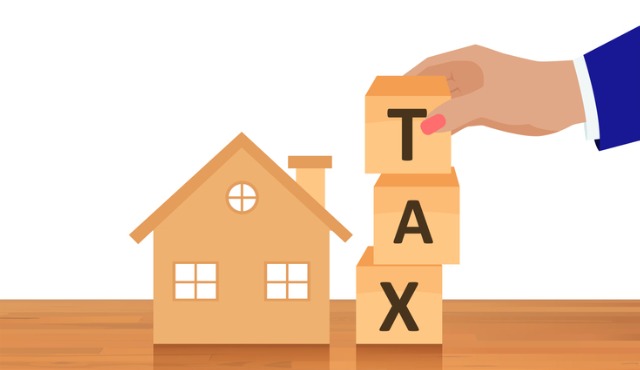By Dixie Somers
As a first-time homeowner, you likely have many questions about the process of buying and owning a home, but one of the most important topics to understand is property taxes. Property taxes can be confusing, but they’re an important part of owning a home. Let’s break down what property taxes are, who pays them, and how they are calculated.
What Are Property Taxes?
Property taxes are the local government’s main source of revenue. These taxes fund essential services like schools, police departments, fire departments and roads. The amount you pay in property taxes will vary depending on where you live—in some states or cities that tax rate might be high while in others it may be lower.
Who Pays Property Taxes?
The typical answer is that homeowners pay property taxes, but there can be exceptions to this rule. In some cases, landlords are responsible for paying their tenants' property tax bills if the lease agreement stipulates that the tenant does not need to pay any additional fees beyond rent and utilities. So if you're renting your first home instead of buying it, make sure to check your lease agreement to see who is responsible for paying the property tax bill!
How Are Property Taxes Calculated?
Property tax calculations vary from state to state and even from town to town. Generally speaking though, your local jurisdiction will determine the value of your home and then use that value to calculate your annual property tax bill based on an assessment rate set by your local government body or school district (or both). This assessment rate is usually expressed as a percentage or millage rate which is then multiplied by the assessed value of your home in order to come up with a dollar amount for your yearly property tax bill. It's important to note that if the value of your home increases over time due to renovations or market appreciation then so too will the amount you owe in property taxes!
What Should You Do When You Receive Your Property Tax Bill?
Once you've received your bill from your county’s tax assessor or collector's office—which should happen at least once a year—you should make sure all the information on it is correct before you pay it. Double check that your address and other personal details are correct; if they're not then contact your local tax authority right away so they can update their records. Then review the amount due; if there's anything that looks incorrect then contact your local tax authority so they can explain what went wrong or help fix any errors. Finally, make sure you pay your bill on time—most counties offer online payment options these days which makes it easier than ever!
What Should You Do If You Feel Your Property Taxes Are Too High?
If you think your property taxes are too high, there may be options available to challenge the amount. You can contact your property tax appeal assessor's office and ask for an informal review of your assessment. You might also consider hiring a professional real estate appraiser who can assess the fair market value of your home and compare it with the assessed value used to calculate your taxes.
Additionally, you may be eligible for certain exemptions or tax credits that could reduce the amount of property taxes you owe. Finally, many states also allow homeowners to protest and appeal their property taxes if they feel that the assessed value of their home is too high. It is important to do your research and understand all available options before taking any steps to challenge your property tax bill.
As a first-time homeowner it's important to understand how much money you'll need to budget each year for things like mortgage payments and insurance premiums—but don't forget about property taxes! Property taxes can often seem confusing at first glance but once you wrap your head around them it's really just about understanding what these taxes are used for, who pays them (it could be either the homeowner or their landlord) and how they're calculated based on local laws and regulations. By taking all these factors into consideration when budgeting for homeownership costs each year you can ensure that you won't get caught off guard by an unexpected increase in your yearly tax bill!
 Dixie Somers is a freelance writer who loves to write for business, health, and women’s interests. She lives in Arizona with her husband and three beautiful daughters.
Dixie Somers is a freelance writer who loves to write for business, health, and women’s interests. She lives in Arizona with her husband and three beautiful daughters.








